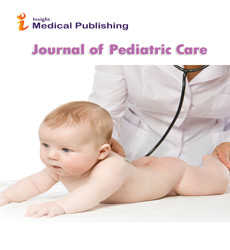Abstract
A Successful International Child Health Elective The University of Colorado Department of Pediatrics�?? ExperienceIndia
Objectives To describe the organizational features of an international child health elective (ICHE) and to document the diversity of diagnoses observed by residents.
Design Faculty from the Department of Pediatrics, University of Colorado Health Sciences Center, Denver, created a steering committee in 1999 to develop and direct an ICHE, including selecting residents, selecting and organizing sites, and creating objectives and a year-long preparatory curriculum. The elective was piloted in 2000 and repeated in 2002 and 2004.
Setting and Participants Residents chose from 4 ICHE sites in Peru and Guatemala, where they observed clinical care in various clinical settings during a 4-week elective.
Main Outcome Measures The ICHE was evaluated via written evaluations by faculty and residents as well as written and oral reports by participating residents.
Results During the 2000 and 2004 electives, residents recorded clinical cases in a data-entry log. Of the patients logged, 18% had illnesses never seen before by the residents and 5.6% had illnesses in advanced stages not previously seen by the residents. Strong reciprocal relationships were created between the department and participating international institutions. Residents reported uniformly that the elective was a valuable element of their training.
Conclusions Planning and faculty involvement in ICHEs helps to ensure achievement of elective objectives. Well-organized ICHEs have the potential to augment resident education. The experience at our institution demonstrates that ICHEs can provide experience with a variety of medical systems, exposure to diverse pathophysiologic conditions, and opportunities for collaboration with international colleagues.
Pediatric resident international child health electives (ICHEs) in developing countries provide a unique educational experience and are an important component of pediatric residency training in the United States.1 This type of elective provides cross-cultural medical experiences with exposure to different health care delivery systems, rarely seen diseases, and opportunities for language immersion. Previous studies have indicated that international electives may influence career decisions, leading to an increased desire to work with underserved populations and a higher likelihood of choosing a career in primary care.2-5
Many residency programs have developed international health electives (IHEs) with various formats. A 1995 survey of pediatric residency programs in the United States, Canada, and Puerto Rico showed that 25% of the responding programs offered formal or informal ICHEs.1 These data suggest that ICHEs are a common component of pediatric residency training. Accordingly, the American Academy of Pediatrics has developed consensus guidelines that outline goals for pediatric residents wanting to participate in ICHEs and for programs seeking to organize ICHEs.1
There are several reports in the literature about the educational value of IHEs, most of which rely on survey data.2,3,5-9 However, despite the prevalence of ICHEs in pediatric training programs and the American Academy of Pediatrics consensus guidelines, the literature reports relatively few successful pediatric ICHEs and little information about how they are organized.6,10-12 Information about costs to residents and to the residency program, preparation of residents for travel abroad, structure of electives, site selection, and participant selection is beneficial to residency programs that seek to create successful ICHEs.
The University of Colorado Health Sciences Center Department of Pediatrics (UCDP), Denver, developed an ICHE that was piloted in April 2000. The elective has continued biannually, with the third wave of residents participating in the spring of 2004. During that period, the elective has evolved and has been successful as measured by resident and faculty evaluations, the overall safety of all participants, and the development of a reciprocal relationship with the participating institutions abroad.
The objectives of this article are to describe the organizational features of the elective, to outline the format of the elective in a way that might serve to assist other programs in the development of similar electives, and to describe the unique pathologic conditions seen in the clinical cases by the residents.
Methods
In 1999, a steering committee consisting of faculty members with interest and experience in international child health was formed with the intent of developing an ICHE that would be available to UCDP residents.
Participating residents
The elective was specifically designed to attract residents who did not have previous experience working or traveling in developing countries, and who would otherwise be unlikely to do so. Through an organized and positive experience, we expected to foster an interest in international health in this group. Additionally, it had been noted in our institution that residents with previous international experience were successful in organizing and completing IHEs independently. Although interns may have had more time to cultivate an interest after such an experience, the committee decided to restrict the elective to second- and third-year residents for 3 main reasons
Author(s):
Steven G. Federico,
University of Colorado Health Sciences Center,USA
Abstract | PDF
Share this

Google scholar citation report
Citations : 130
Journal of Pediatric Care received 130 citations as per google scholar report
Abstracted/Indexed in
- Google Scholar
- China National Knowledge Infrastructure (CNKI)
- Cosmos IF
- WorldCat
- Geneva Foundation for Medical Education and Research
- Secret Search Engine Labs
Open Access Journals
- Aquaculture & Veterinary Science
- Chemistry & Chemical Sciences
- Clinical Sciences
- Engineering
- General Science
- Genetics & Molecular Biology
- Health Care & Nursing
- Immunology & Microbiology
- Materials Science
- Mathematics & Physics
- Medical Sciences
- Neurology & Psychiatry
- Oncology & Cancer Science
- Pharmaceutical Sciences

